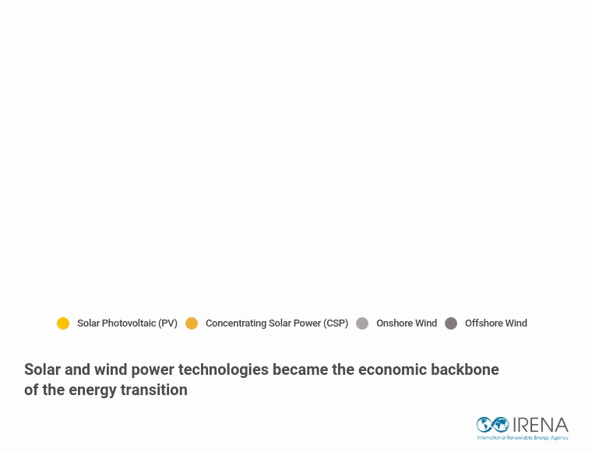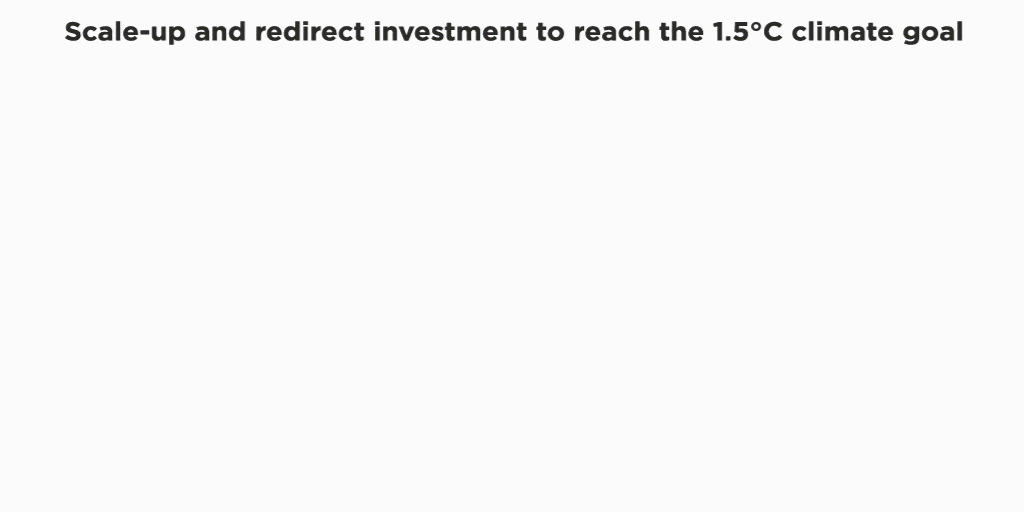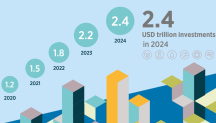

The Case for Leadership and Bold Choices
Newsletter
IRENA urges global community to seize energy transition momentum at G20, COP26 and beyond
The global community is approaching a fork in the road on climate change. Growing scientific evidence suggests there may be a diminishing window of opportunity to put the world on a path to safety, and choices made now in respect to the energy transition will dictate success.
This sense of urgency offers a backdrop to upcoming G20 and COP26 discussions in Rome and Glasgow respectively, where global leaders of both developed and developing countries will engage in talks that are likely shape climate mitigation efforts for generations to come. “The era of half measures and hollow promises must end,” says UN Secretary-General António Guterres ahead of COP26, calling on leaders “to be clear in their actions”, and saying “they need to come to Glasgow with bold, time-bound, front-loaded plans to reach net zero.”
In this context, IRENA will urge the world’s decision makers to make a choice. “The scenario is very simple,” says IRENA Director-General Francesco La Camera. IRENA’s World Energy Transitions Outlook paves the way to a net-zero energy future. It translates a pathway aligned with the development and climate priorities into a clear picture of policy, finance and socio-economic shifts to maximise benefits and manage adverse impacts on the way. "Climate change was once a faraway threat that demanded attention. Now it is a present-day reality that requires immediate action," he continues.
"Our options are simple – make the safe choices that lead us to uncertainty, or the bold choices that offer universally positive outcomes. The world is looking for leaders."
What has long been a powerful narrative is now an undeniable fact and the choice is ours. IRENA’s ‘Our Future. Your Choice’ campaign seeks to make the opportunities and consequences of these preferences clear as we head to a key phase.
Here’s why global leaders must choose the energy transition, and they must choose it now.
The transition delivers jobs
Renewable energy is creating jobs - millions of them. Just recently IRENA’s latest edition of Renewable Energy and Jobs report published in cooperation with the International Labour Organisation, showed staggering job growth in the sector despite the challenges associated with COVID-19. More than 12 million people are employed in the sector today with half a million jobs added in 2020. Yet this is only the start. IRENA’s World Energy Transitions Outlook, suggests that by 2050 jobs in the energy sector would more than double to 122 million, relative to today’s levels by choosing a more aggressive transition pathway.
People and governments are better off
Renewables are largely outcompeting all other forms of power generation on costs, bringing immediate benefits to people and governments all over the world. IRENA’s most recent cost analysis shows that up to 1 200 gigawatts of existing coal capacity globally – more than half of globally installed coal capacity today – currently costs more to operate than the cost of new utility scale solar PV.
Therefore, added investments in renewables to accelerate the transition are not at the expense of consumers – on the contrary, they are saving consumers and governments money that can be reallocated to other priorities. Since 2010, the 534 GW of renewables added in emerging countries at lower costs than the cheapest coal option is reducing electricity costs by around USD 32 billion every year.

See more infographics here.
The investment pays off many times over
A $33 trillion funding gap stands between the world and its goal of limiting energy related emissions enough to limit global warming to within 1.5°C by 2050. While these investment needs for a 1.5 future may look steep, each dollar invested yields benefits of between USD2 and USD5. In the near term it adds 2.4% to global GDP by 2030, above current plans. This may be the greatest investment humanity ever makes in its future.

Our direction is positive, we just need to move faster
Renewable energy additions have dominated new generation for a decade now, ever since the expansion of fossil fuels fell below the rate of renewable expansion in 2011. In other words, for nine of the last 10 years renewable energy has significantly outpaced all other forms of power generation additions combined thanks to its falling costs, ease of deployment and advances in efficiency and scale. In 2020, a record 260 GW of renewables were added despite the pandemic. But this remains a long way short of the deployment speed needed to achieve goals. According to IRENA’s analysis renewable deployment needs to reach levels of around 800GW per year to limit warming to 1.5°C by 2050.
The message is clear. Choose the transition in both words and actions, putting people and economies on a path to inclusive growth, improved health, and reduced climate impacts.
IRENA’s work during COP26, will bring further attention to the need for leadership and urgency.
Follow IRENA on Twitter to learn more about ‘Our Future, Your Choice’ and join the conversation using #ChooseAction.




